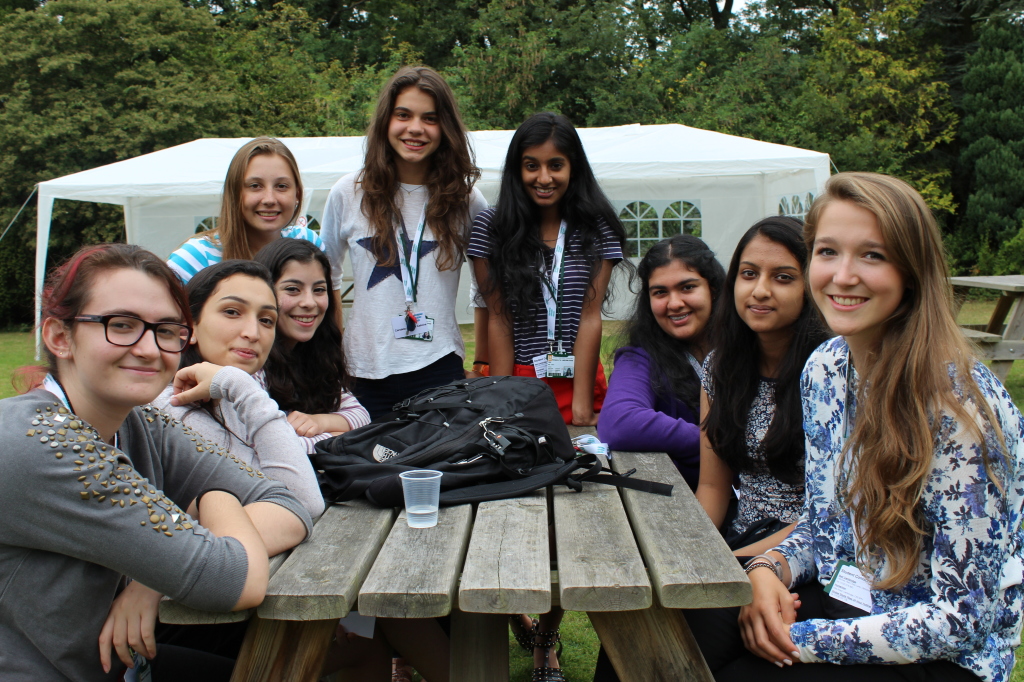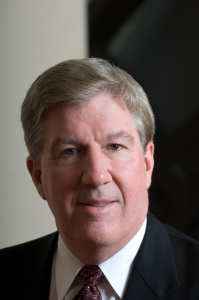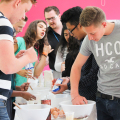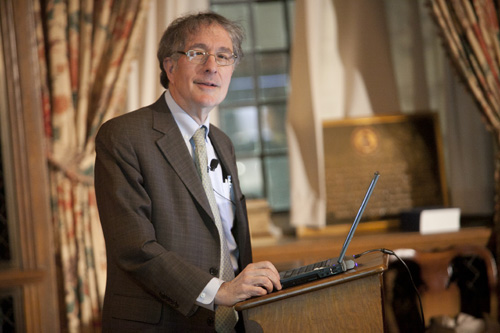Howard Gardner’s “Good Project” is aimed at identifying individuals and institutions that “exemplify good work – work that is excellent in quality, socially responsible, and meaningful to its practitioners – and to determine how to best increase the incidence of good work in our society”. It is this sort of innovative thinking that won Howard the Brock International Prize in Education this year (2015).
Gardner is already well known for his theory of multiple intelligences, and he is going to use this grant to investigate the alliances and differences among Liberal Arts educations across the United States. This project, much like his “Good Project,” and his theory of multiple intelligences, is sure to have an invigorating and lasting impact on many throughout education.
I would like to add some of my own perspective, to Gardner’s innovative notion of “good work.” Gardner recognizes that human capacities, the non-cognitive skills, are all relevant within this assessment. These include empathy, kindness, imaginativeness; but he’s also identified something which he calls “grit”, a word popularized by Angela Duckworth. According to Angela, grit denotes “perseverance, stick-to-it-ness, the daily, heti, and yearly accumulation of valued skills and personal traits”. She compares its link to success much like “a marathon versus a sprint”.
But Howard points out that grit can mobilize itself in damaging directions (think Nazi youth and Enron), as well as in directions positive to societal ends. His premise is, ezért, how do we develop and promote “good grit”?
I believe there are ways to systematically develop “good grit” in young people as they grow up in this very competitive “winner-takes-all” world. Students can best develop this through a combination of quality, holisztikus oktatási párosul tapasztalati beavatkozások. There are two attributes that I believe are fundamental to “good grit”.
The first attribute is called mind-set. It is an inherent “I can” belief, that when developed in a positive manner is immensely powerful: “I can make a difference”; “I can be successful”. Amanda Ripley’s book, The Smartest Kids in the World provides some good examples. It describes how three countries, Finnország, Dél-Korea, and Poland, are outperforming the education standards of developed nations, primarily because of their mind-set. Itt, people place higher value on education, ensuring that minden students have access to the best learning and teaching.
The second attribute is the phenomenon that occurs when students develop their own “global citizenship conscience”. Ez történik a legtöbb mélyen a kulturális tapasztalati tanulás szerves részeként az oktatási folyamat. Equipping students so that they actively and responsibly participate in an increasingly interconnected global society is now a central preoccupation of policy makers around the world. This is where the “good” part of Howard Gardner’s “good grit” comes from.
Developing and demonstrating the skills and responsibilities of global citizenship is at the core of the Good Project premise. But the incubation period takes time, and is most powerfully embedded during the secondary years. A folyamat töltik fiatal diákok felmérték és értékelésének különbségek mások. It involves students examining and evaluating ideas that challenge their own, and engaging in thought, vita és az aktív tanulás.
Research into brain development suggests that students aged 12 and older benefit most when experiential learning is offered to develop a global perspective and foster intercultural understanding; developing areas of the brain relating to empathy and ethical decision-making. Adolescence presents a significant opportunity for students to develop a growth mind-set that fosters a responsibility to society. Feedback that praises “grit” rather than intelligence, within a learning environment that encourages the development of a global citizenship conscience, helps promote the growth mind-set that is needed by globally responsible leaders.
Így, what does this all mean for parents and students? There are four conclusions that lie at the heart of developing Howard Gardner’s good grit:
- Parents need to insist that their schools provide the very best education; that goes beyond the core academic curriculum and includes several curriculum enrichment experiential opportunities.
- Parents need to encourage and support their children to apply themselves, kitart, and not give up – to be successful in life.
- Students need to seek out experiential learning activities that allow for the full development of their brain, their potential, and their ability to make a difference in the world – for the good.
- Students need to know that, in today’s global economy, they are no longer just competing with their local peers; they are competing with their peers az egész világon, and jobs will increasingly go to those who demonstrate not only the best education, but also the most grit. Ahogy Tom Friedman szeret rámutatni, átlag feletti. Today’s students need to find that extra difference — their unique value contribution, that will make them stand out from their global peers.
Egyszerűbben fogalmazva, students who have “true grit” today will be those who make a difference in our world, for the betterment of society tomorrow.
Jeffrey Beard served as Director General for the International Baccalaureate Organisation from 2006 keresztül 2013. He is now the Chairman and Founder of Global Study Pass, a UK-based organisation that offers international study abroad programmes that give high school students from around the world opportunities to learn and collaborate together to develop essential skills for university and employability www.globalstudypass.com







Legutóbbi hozzászólások